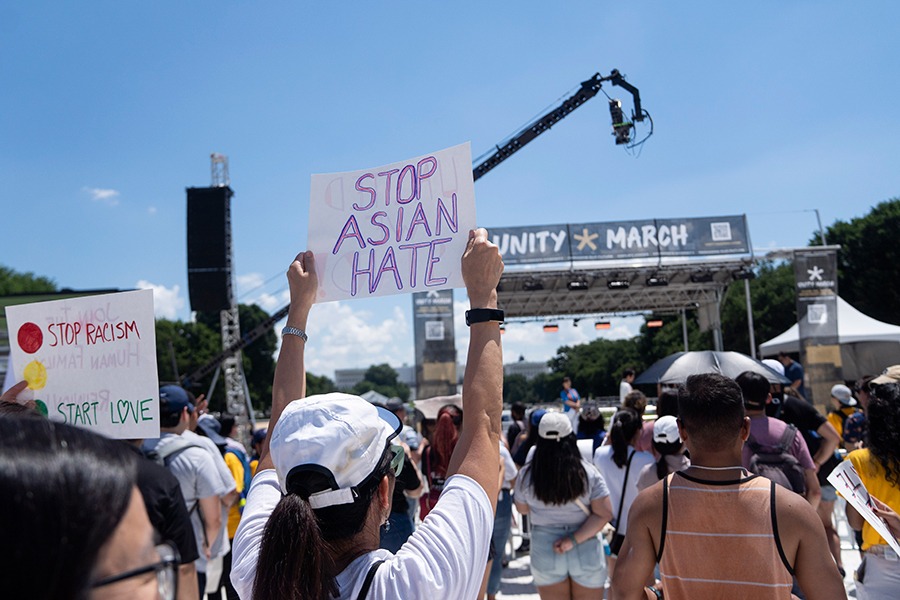Nuclear talks felled by competing demands
By PAN MENGQI | China Daily | Updated: 2019-10-09 09:55

US insistence on full denuclearization leaves DPRK sanctions call unheeded
The breakdown of working-level nuclear talks over the weekend will make future negotiations between the Democratic People's Republic of Korea and the United States even more difficult as the two countries remain reluctant to bridge the gap between them, experts said.
The main stumbling block is that Washington's demands for complete denuclearization of the Korean Peninsula run up against the DPRK's insistence on relief from sanctions, they added.
The two sides restarted their long-delayed talks on Saturday in Stockholm but failed to reach a consensus.
The DPRK said it had ruled out the possibility of holding further negotiations with the US, which it accused of inflexibility. However, the US said it still hoped its negotiators would to return to the Swedish capital for more discussions in two weeks.
According to Sun Chenghao, an assistant research professor at the Institute of American Studies of the China Institutes of Contemporary International Relations, the breakdown in the talks underscored the difficulty of closing the gap between the two sides.
"It seems that both the DPRK and the US are resorting to the strategy of brinkmanship before the talks, by which they are seeking to gain more leverage and to pressure the other side to concede when things reach a crucial stage," Sun said.
Sun noted that the atmosphere surrounding this round of talks is negative, citing the DPRK's weapons tests of recent months, as well as Washington's reluctance to budge on sanctions. Sun also cited US President Donald Trump's oft-stated position that he is in "no rush" for an agreement on a denuclearization road map.
He said that the DPRK, with its claim that it will not enter into further negotiations, is seeking to pressure the US into easing its hostile policy toward the country.
He said it would be clear to the Trump administration that its interactions with Pyongyang have entered their most challenging phase.
Wang Junsheng, an associate researcher at the National Institute of International Strategy under the Chinese Academy of Social Sciences, said the issue of whether to ease sanctions has moved to the forefront now for the US.
"It was hoped that the working-level negotiations in Sweden could at least work out a partial agreement on sanctions, but it seems that the differences are insurmountable. A lack of mutual trust is the fundamental reason," Wang said.
Saturday's meeting marked the first formal round of negotiations since a summit in February between Trump and the DPRK's top leader Kim Jong-un ended without a deal. At those talks in Vietnam, the DPRK offered to dismantle its main nuclear complex in Yongbyon in exchange for substantial sanctions relief, but the US refused to give ground.
In June, at an impromptu meeting inside the Demilitarized Zone at the inter-Korean border, Trump and Kim agreed to resume working-level talks within weeks.
Ups and downs
The nuclear diplomacy between Washington and Pyongyang has been stuck in a cycle of ups and downs. On Oct 2, a day after Pyongyang announced that it had agreed to resume working-level negotiations, it tested a new type of ballistic missile in the waters off Wonsan Bay on the DPRK's east coast.
Analysts quoted by The Associated Press said satellite images indicated that the test was conducted from a submersible barge rather than an actual submarine.
On Monday, the DPRK's United Nations Ambassador Kim Song told media that the test was one of his country's "self-defensive measures", adding that "it has no effect on the security of neighboring countries".
But the Republic of Korea's Yonhap News Agency said the launch was seen as a move aimed at increasing the DPRK's leverage after the high-stakes talks collapsed, as submarine-launched ballistic missiles are regarded as a bigger threat to the US than the short-range ballistic missiles it tested in the preceding months, it said.
Kim Song said it had been almost 100 days since the two leaders' last meeting in Panmunjom, and the US has not presented any new initiative. "Do you think they will come up with a new one in weeks?" the country's envoy to the UN told reporters. He said the DPRK has demanded that the US come up with mutually acceptable proposals to salvage the nuclear diplomacy by the end of this year.
























